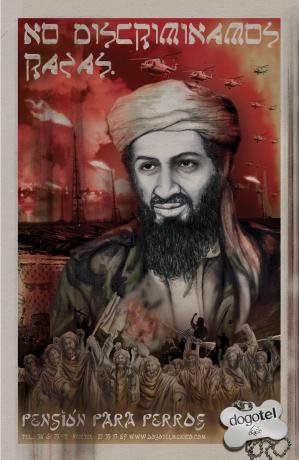 South Africa's rural areas will increasingly become central to political contestation. The country is urbanising rapidly, and the ruling party has a stronger urban legacy. Yet rural support is becoming the foundation of the ANC's continued electoral dominance.
South Africa's rural areas will increasingly become central to political contestation. The country is urbanising rapidly, and the ruling party has a stronger urban legacy. Yet rural support is becoming the foundation of the ANC's continued electoral dominance.The past week confronted me with the stark reality that many comrades from the past, who backed Mzansi's (South Africa's) ANC during the Eighties and into the post-1994 era, had abandoned the ANC for opposition parties, despite the (to me) obvious fact that a radical internal power and leadership transformation within the ruling party would sweep it back into power with a massive mandate.
Despite strong misgivings about the endemic levels of corruption, instances of poor governance, inverted racism and erosion of a human rights culture, I had little hesitation in re-affirming my support for the ANC.
Most of these comrades, from an earlier period in my life, had drifted virtually completely or at least partially out of my social universe, as I settled in a rural area, and most of them remained behind in urban middle class communities, career-building, and friendship circles. By contrast, I mixed more-and-more with people on the periphery of access to resources, to Information technology, to jobs, to decent education and health, to basic infrastructure, and to power. My reference group also slowly became younger, and I became far more caught-up in the aspirations, value-systems and alienation of a post-liberation age set.
- Firstly, nebulous notions of feel-good nation-building rainbow-people characterisation - the Mandela era. It was an essential step in pacifying a tense, diverse 'nation', and creating the breathing space to, first, take command of the political and state apparatuses; and, secondly, etsablish the framework for a vastly different developmental state, It was characterised by sound bytes such as the 1994 elections and inaugaration; the rugby World Cup and soccer African Nations championships; strong human rights statements around Nigeria and our own new constitutional order; and the virtual deification of Mandela. it briefly seemed to continue into the Mbeki era, with the latter's I am an African speech, and the intellectual and institution-building emphasis on the African Renaissance.
- Secondly, the establishment of a technocratic and centralised state; with a mixed track record in lean, mean efficiency (the fiscus) and structures inviting of corruption and poor capacity (most local government bodies). This state co-incided with rapid establishment of an often poorly capacitated middle class (affirmative action; fast-tracking) and a parasitical new capitalist strata, that included luminaries of the political struggle era, and often focussed on rapid capital accumulation through deal-making at the expense of expanding capital (black economic empowerment, crony capitalism, deal-making through influence and position).
The new era unfolding, signalled through Mzansi's (South Africa's) bitter politics of the last few years, has culminated in the election to power of Jacob Zuma and a very diverse set of class ineterests backing that ascendancy. Common to this class alliance is, hitherto, exclusion from the benefits, spoils and active participation in a growing economy.
We've already seen the emergence of divisions far more bitter than what unfolded at Polokwane: suffice to refer to the ANC Women's League and Youth League elections. There is a diversity of capitalist and aspiring capitalist elements vying for hegemony in policy implementation with the leftwing agendas of the trade union movement and the South African Communist Party. The left dictated the intellectual discourse of the pre-liberation period, and it senses the return of that power.
Time has moved on. The current context revolves around the re-definition of state-sponsored accumulation - to me its a straight struggle between the politics of greed (but a new pack, sidelined by the Mbeki era) and the politics of development. In each case there's dense layering: the left incorporates a spectrum from pushing for social contract politics, favourable to the poor and the working classes (with room for expansive capital accumulation), to conservative posturing for expanded social welfare hand-outs (complete with latent conservatism in basic human rights issues or complete disregard for environmnetal and other costs). The latter discourse, seldom articulated intellectually, runs rampant in the rural government institutions and rural support base that consolidated so massively behind the ANC in the elections.
I should have little surprise that comrades from the past abandoned the ANC, in a realistic assessment of their own realities - the issues that confront them, the value systems, the practical impacts on their lives. These are friends and comrades that embraced vibrant urban living-styles, with an intellectual and human rights discourse at odds (or more precisely out of synchronised priority) with developmental realities in the rural areas. (Apartheid was an all-embracing glue that papered over fundamental cracks of the past: for example, the co-habitation of marxist feminism, conservative womens' rights discourses, and practically marginalised but intellectually noisy radical feminist streams.)
Perhaps more disturbing are the comrades from the present, rural or township in origin, that wryly observes the potential for Zanufication: the slow diffusion of urban support for the ANC, and the tightening of a rural compact. The ANC consolidates its rural base - ANC for Life; My vision, My future. Given the media's obsessive pre-occupation with individual leadership - its all about Zuma (its actually very little about Zuma); there should be little surprise that there was hardly a murmur of disapproval of this fundamental break with ANC culture. The ANC historically did not embrace the cult of the personality; it kept Mandela's power vigorously in check (and Mandela himself gave vigorous leadership in that regard, from devolving so much power - monetary policy, defence and intelligence policy, party leadership - to Mbeki in particular (but also selectively to others: Manual, Mboweni), to again-and-again deferring in speeches to the collective 'my people' as the force for decision-making and leadership).
My people was at once shorthand for the struggle (and the general population that experienced the brunt of the impact), and comrades in the struggle, in the movement for liberation.
Ultimately, Mbeki went because of a rupture with and a reaction to his highly centralised, neo-authoritarian style. Yet Zuma ushers in the new era with 'my vision; my party'.
The Polokwane contestation continues in a new form, and this time it is fundamentally defined by class, if not ideologically presented as such. I saw a comment, from a historical supporter of the ANC that voted for the opposition, celebrating the liberating impact of the decision and the perceived political maturity thereof. I beg to differ. Your class context matures and re-shapes you. It can be a digression. It can be a false liberation. It must be a recognised reality, or we shall harvest bitter fruits of conflict.


No comments:
Post a Comment